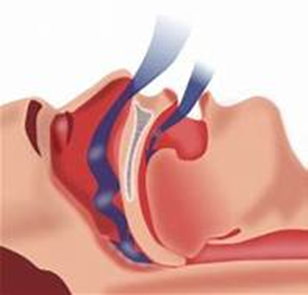A nurse caring for a patient with a Fentanyl patch assesses that the patient is abnormally sleepy, is slurring words, and is unsteady when ambulating.
The nurse should:.
remove the patch and wipe off the skin.
apply ice to the skin around the patch.
elevate the head of the bed 45 degrees and offer coffee or cola drink.
put up the side rails on the bed.
The Correct Answer is A
Choice A rationale:
If a patient with a Fentanyl patch is experiencing symptoms like abnormal sleepiness, slurred speech, and unsteadiness when ambulating, it could indicate an overdose or adverse reaction to the Fentanyl. In such cases, the patch should be removed immediately to stop the further absorption of the drug. Wiping off the skin can also help remove any residual medication. This is the correct choice as it addresses the issue at its source.
Choice B rationale:
Applying ice to the skin around the Fentanyl patch is not the appropriate action in this situation. Ice will not counteract the effects of a Fentanyl overdose or adverse reaction. The priority is to remove the patch and seek medical attention.
Choice C rationale:
Elevating the head of the bed and offering coffee or cola may be useful in combating some forms of sleepiness but would not be effective for someone experiencing an overdose or adverse reaction to Fentanyl. This choice does not address the problem's root cause and is not the appropriate action to take.
Choice D rationale:
Putting up the side rails on the bed does not address the issue of Fentanyl patch overdose or adverse reactions. This choice is not relevant to the situation and should not be chosen.
Nursing Test Bank
Naxlex Comprehensive Predictor Exams
Related Questions
Correct Answer is C
Explanation
The correct answer is: C. Decreased energy.
Choice A reason: Hypotension is not typically associated with obstructive sleep apnea (OSA). OSA is more commonly linked with hypertension due to the frequent arousals during sleep that activate the sympathetic nervous system, leading to increased blood pressure.
Choice B reason: Pneumonia is an infection of the lungs and is not a direct consequence of OSA. While OSA can affect the respiratory system, it does not cause pneumonia. However, individuals with OSA may have a higher risk of respiratory infections due to compromised breathing during sleep.
Choice C reason: Decreased energy is a common symptom of OSA. People with OSA experience repeated episodes of partial or complete upper airway obstruction during sleep, leading to disrupted sleep patterns and insufficient rest. This results in daytime sleepiness and fatigue, which are hallmark signs of the condition.
Choice D reason: Thyroid disease, specifically hypothyroidism, can be associated with OSA, but it is not a direct finding of the condition. Hypothyroidism can lead to changes in the soft tissues of the upper airway and contribute to the development of OSA, but it is not a symptom used to diagnose OSA.

Correct Answer is A
Explanation
There are three types of sleep apnea: obstructive, central, and mixed complex. Obstructive apnea is the most common type. It is caused by the relaxation of the soft tissues, which allows partial to total obstruction of the airway. (True or False) = The correct answer is True.
Choice A rationale:
True. Obstructive sleep apnea is indeed the most common type. It occurs when the soft tissues in the throat and the muscles of the upper airway relax too much during sleep, leading to a partial or complete blockage of the airway. This obstruction results in the characteristic pauses in breathing that are a hallmark of obstructive sleep apnea.
Choice B rationale:
False. Obstructive sleep apnea is not caused by the need for hypnotics or sleep-inducing medications. It is a physiological condition related to airway obstruction during sleep and not a result of poor sleep hygiene or a lack of medication.
Choice C rationale:
False. While it's true that older adults may have changes in their sleep patterns, this doesn't mean they require 10 hours of sleep a day to prevent fatigue. Sleep needs can vary among individuals, and older adults often experience more fragmented sleep and may nap during the day, but the requirement for 10 hours of sleep a day is not a general rule.
Choice D rationale:
False. Older adults may nap more during the day due to changes in their sleep patterns, but it doesn't necessarily mean they need to nap less to sleep better at night. The sleep-wake cycle of older adults may be different from younger individuals, and it's not always necessary for them to reduce daytime napping to improve nighttime sleep.
Whether you are a student looking to ace your exams or a practicing nurse seeking to enhance your expertise , our nursing education contents will empower you with the confidence and competence to make a difference in the lives of patients and become a respected leader in the healthcare field.
Visit Naxlex, invest in your future and unlock endless possibilities with our unparalleled nursing education contents today
Report Wrong Answer on the Current Question
Do you disagree with the answer? If yes, what is your expected answer? Explain.
Kindly be descriptive with the issue you are facing.
